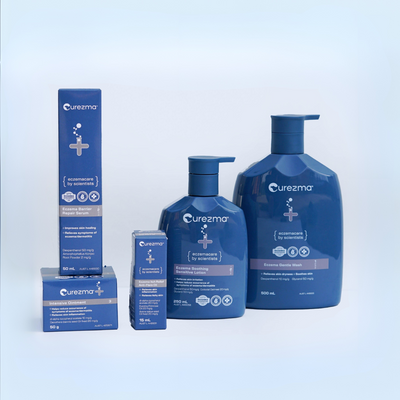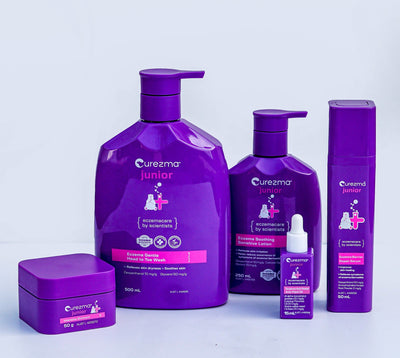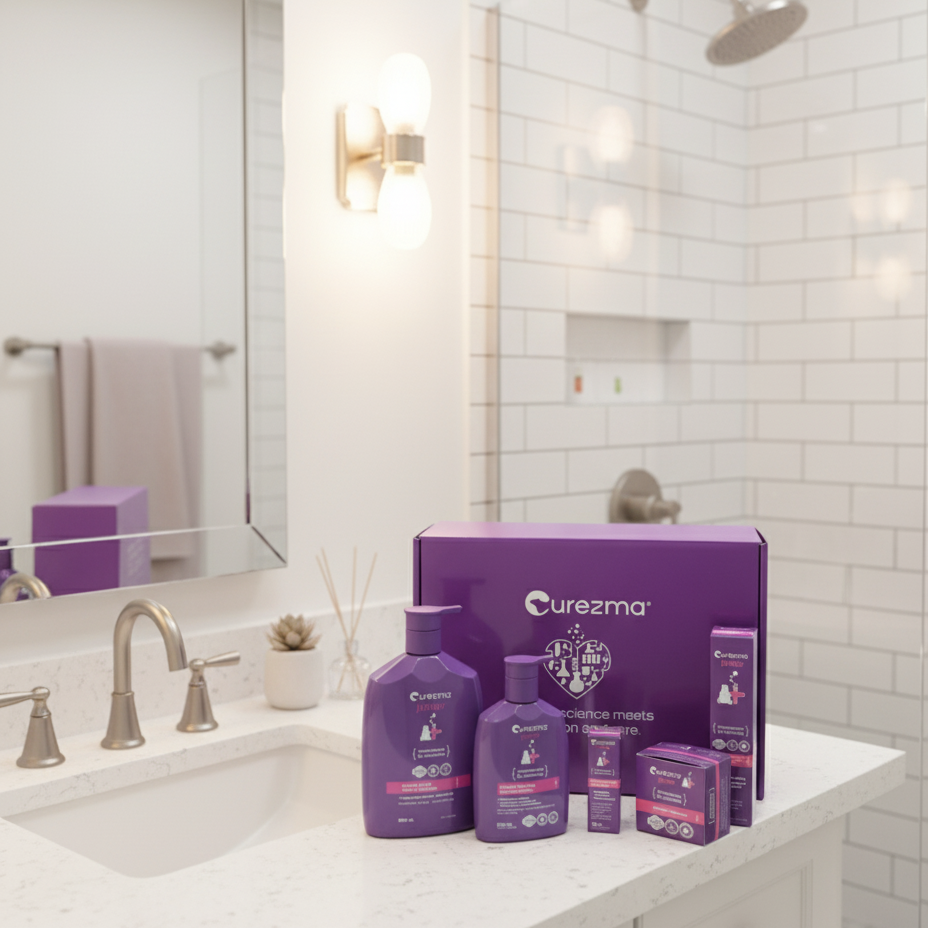Understanding and Strengthening Your Skin Barrier
As Eczema Warriors, it's important to know about your skin barrier and why it plays a crucial role in protecting your skin. The skin barrier, also known as the stratum corneum, is the outermost layer of your skin and acts as a defence system in two ways.
Firstly, it shields you from various external threats like pollution, UV rays, irritation, dehydration, and toxins. Secondly, it regulates the loss of water from your skin, ensuring it stays hydrated and healthy.
To grasp the concept better, let's delve into the layers of the skin. The skin consists of three main layers: the hypodermis, the dermis, and the epidermis. In the context of cosmetics, the epidermis is the most relevant layer, as it forms the outermost barrier. The dermis serves as the foundation for the epidermis and contains vital components such as blood vessels, lymph vessels, oil glands, and nerve endings.
The epidermis, however, lacks these features. It is composed of multiple layers that work to maintain your everyday skin health. They generate new cells to replace the ones you shed and produce melanin and keratin, which contribute to the structure of your skin.
The stratum corneum is a unique part of the skin barrier. It is the outermost layer and consists of dead skin cells from the lower layers of the epidermis. These cells flatten out and bind together to form a protective barrier, sacrificing themselves in the process.
Your skin barrier can weaken due to factors like age, genetics, and the environment. As you age, your body may produce fewer nutrients essential for maintaining healthy and hydrated skin. Environmental factors, such as sun damage and chemical irritants, can worsen the condition. Additionally, genetic predispositions, like being prone to dermatitis, can affect your skin barrier.

Certain practices and substances can also damage your skin barrier:
1. Harsh detergents that strip away natural oils.
2. Alcohol-based astringents that dry out your skin.
3. Rough exfoliants, shaving, and scratching that cause small abrasions.
4. Overuse of AHAs and BHAs, which weaken the bonds between skin cells Prolonged sun exposure that damages cells and dehydrates the skin.
To strengthen your skin barrier, you can minimize damage and provide it with additional nutrients and protection. The skin barrier contains natural moisturizing factors (NMF) and an intercellular lipid matrix. An unhealthy skin barrier may lack sufficient lipids to prevent water loss and have ruptured cells leaking their NMFs.
Repairing the skin barrier involves using moisturizers that contain humectants, emollients, and occlusives:
1. Humectants attract water to the skin.
2. Emollients fill gaps in the skin and supplement the lipid matrix.
3. Occlusives reduce water loss through the skin.
By reducing damage and providing essential support, you prevent further harm to your skin barrier. For instance, dry skin is more susceptible to irritants and infections, leading to itching, inflammation, and scratching. This cycle of damage and response hinders the skin's ability to repair itself and maintain hydration.
Curezma is the ultimate product for your skin barrier. It repairs and maintains its health effectively. With ceramides and patented technology, Curezma penetrates all levels of the skin, balances ceramide levels, relieves itching, inflammation, and redness. It also contains antioxidants to combat oxidative stress. Clinically proven to repair the skin barrier function in just 5 days, instantly reduces water loss and retains moisture for 100 hours.
References:
Curezma Clinical Trials
https://www.webmd.com/skin-problems-and-treatments/skin-barrier-what-to-know/
https://thenakedchemist.com/barrier-repair-the-key-healthy-skin/
https://www.medicalnewstoday.com/articles/astringent/
https://training.seer.cancer.gov/melanoma/anatomy/layers.html/
https://dermnetnz.org/topics/barrier-function-in-atopic-dermatitis/
https://www.ncbi.nlm.nih.gov/pmc/articles/PMC5967208/
https://nationaleczema.org/blog/what-is-my-skin-barrier/
https://practicaldermatology.com/articles/2012-jul/understanding-the-role-of-natural-moisturizing-factor-in-skin-hydration/








